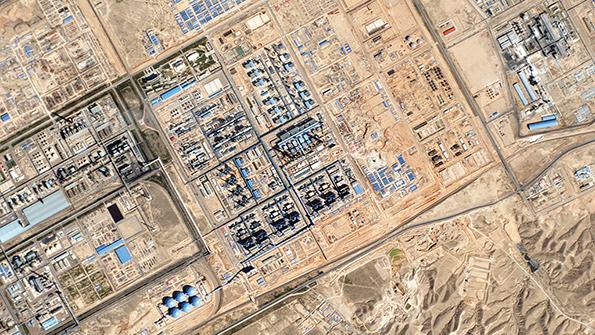
Daily space-based imagery and services provider Planet Labs expects full-year revenue this fiscal year to be $170-190 million, practically 30% above last fiscal year, which was 16% above the year before.
The outlook came late March 31 as Planet managers released fiscal 2022 results, which ended Jan. 31. Revenue was $131.2 million compared with $113.17 million in fiscal 2021. Net loss expanded to $137.1 million from $127.1 million the year before, but per share the loss decreased to $1.72 from $2.87.
Planet began trading on the New York Stock Exchange in December 2021 after a reverse-merger with a special purpose acquisition company (SPAC), and the latest financial results marked its second official public financial results report.
Planet CEO and co-founder Will Marshall told a quarterly call that revenue growth will come in part from its recently placed new constellation upgrade. On March 1, Planet announced the general availability of its next generation of PlanetScope Monitoring band, offering higher-quality analysis via eight spectral bands, doubling that of the prior generation of satellites.
The company’s overall revenue growth rate this fiscal year could double or triple due to market demand, including imagery provided in response to Russia’s invasion of Ukraine. It counts more than 770 customers.
“There are some key and important customers that we have seen,” Marshall said. “It’s increasing demand overall, and some of these have been on our radar screen for some time, but this has just pushed them to get it now ... Ukraine only accelerates those trends.”
For the fiscal year ending Jan. 31, 2023, capital expenditures should be $20-25 million. Adjusted pretax loss should be $50-75 million. The San Francisco company ended January 2022 with $491 million in cash and equivalents and no debt.
The go-public SPAC deal with dMY Technology Group raised more than $590 million in gross proceeds, but managers acknowledged that there were more costs associated with becoming a public company than previously expected. The company also took a hit when Afghanistan-related work was suddenly stopped after the U.S. withdrawal from there.
